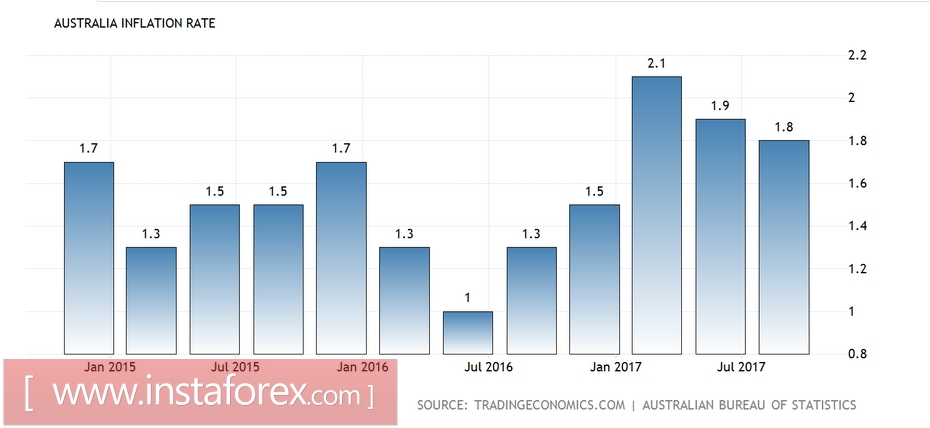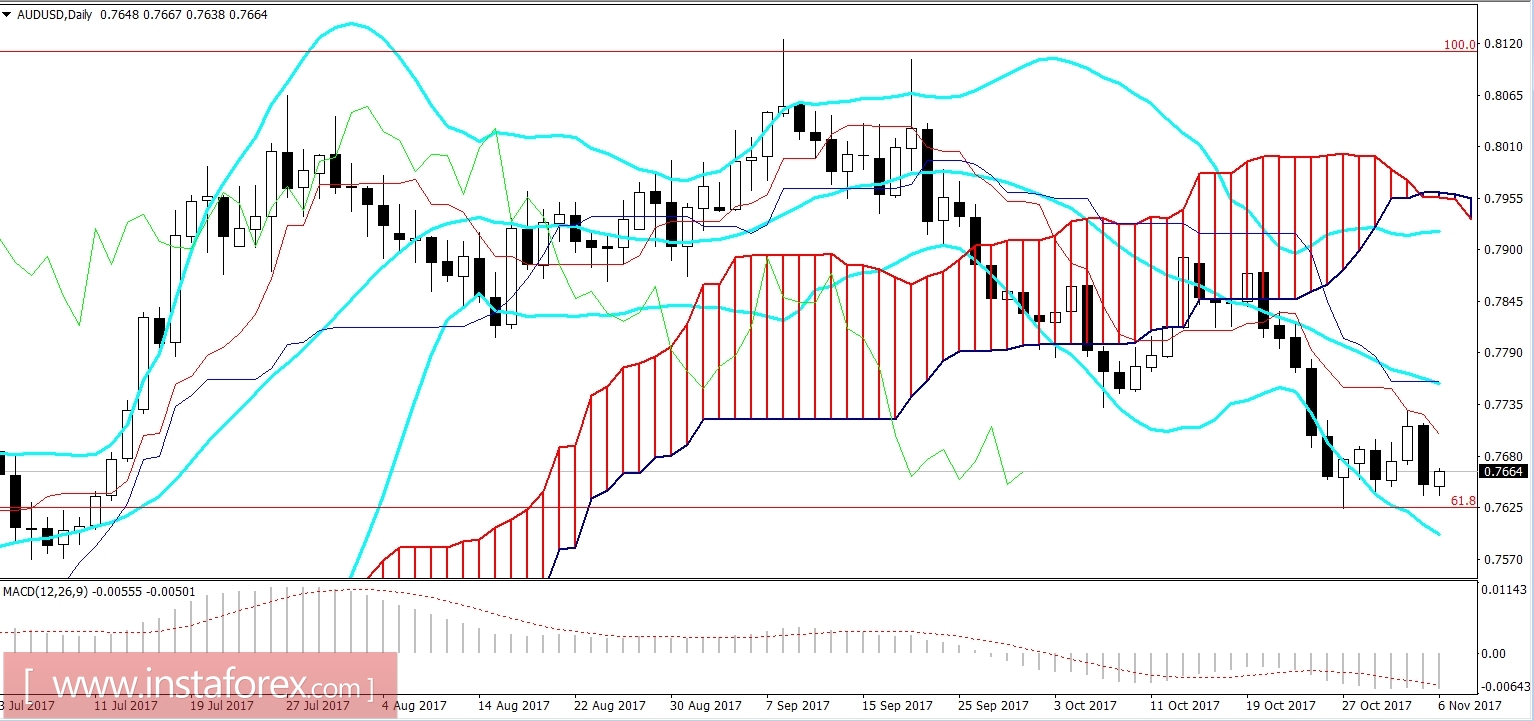Last week, the Australian dollar paired with its American counterpart did not retain the positions it won once more and returned to the area of the 76th figure. The pair is now subject to many external factors, primarily from China and the United States. News from the China put pressure on the Australian dollar, but the mixed report on the US labor market, on the contrary, - suspended the fall of the Aussie dollar.
The commodity market also gives mixed signals. The cost of a ton of copper in October rose to $7, 146 (this year's high), while iron ore shows a negative trend, dropping from the September peak ($78) to today's $ 64 per ton. On the other hand, quotes of oil rose to two-year highs - a barrel of Brent crude oil is now traded at around $62. Such an unclear picture of the commodity market has a controversial impact on the AUDUSD pair, especially on the eve of the meeting of the Australian central bank.
The Reserve Bank of Australia will hold its regular meeting on November 7, which will determine the prospects for the country's monetary policy. Almost with a 100 percent probability, it can be said that the RBA will leave all the parameters of its monetary policy in its current state, taking into account the previous comments of the regulator's members. But, despite this predictability, the November meeting may still stir the market.
Some analysts remain hopeful of a hike in the interest rate of the RBA early next year (to be more precise, in the first half of the year). In particular, HSBC's analysts argue this assumption with the growth of Australia's GDP: in the second quarter the figure reached 0.8% against 0.3% of the first quarter. According to analysts, such dynamics offset the weak growth of average wages and inflation. In annual terms, the Australian consumer price index is gradually declining for the third consecutive quarter, and this fact worries the members of the Reserve Bank of Australia. It is troubling enough that one of them (Ian Harper) in early October allowed a further reduction in the interest rate, if inflationary indicators continue this trend.

Given this commentary, it's hard to imagine an Australian regulator talking about the possibility of tightening monetary policy in the foreseeable future during the meeting tomorrow. I will dare to disagree with HSBC experts: the central bank will primarily focus its attention on inflation, the indicator of which once again came below forecasts. This aspect will be crucial for the members of the RBA, despite of the decrease in unemployment (up to 5.5%): wage growth remains at a low level, which reduces the probability of an impulse growth in the consumer price index. In addition, the balance of households' imbalance in their income should be noted: raising rates will only aggravate the current situation.
The housing market does not also contribute to the tightening comments of the members of the central bank. In different megacities, multidirectional dynamics is fixed, so it is too early to talk about "overheating" of the housing market. Judging by the main theses of the minutes of the last meeting of the RBA, this factor is not important, contrary to the inflationary processes.
In addition to the mixed situation in the commodity market and weak inflation, there are also negative news from China. Tightening environmental standards has led to the fact that many Chinese metallurgical factories and steel mills have reduced their production. This was reflected in the general growth of industrial production in the the country. The PMI index in October came out worse than expected (51.6 points), after the release of which the AUDUSD sharply declined. According to experts, China will continue to tighten environmental regulation. Just over the weekend, China announced a "yellow" level of air pollution (the second to the highest level), and in the capital of the country it was declared "orange". All this indicates that the Chinese authorities will strengthen the fight against pollution, which will directly affect the pace of industrial production. In turn, this will affect the Australian export of iron ore, as China is the main trading partner of the Australia.






















